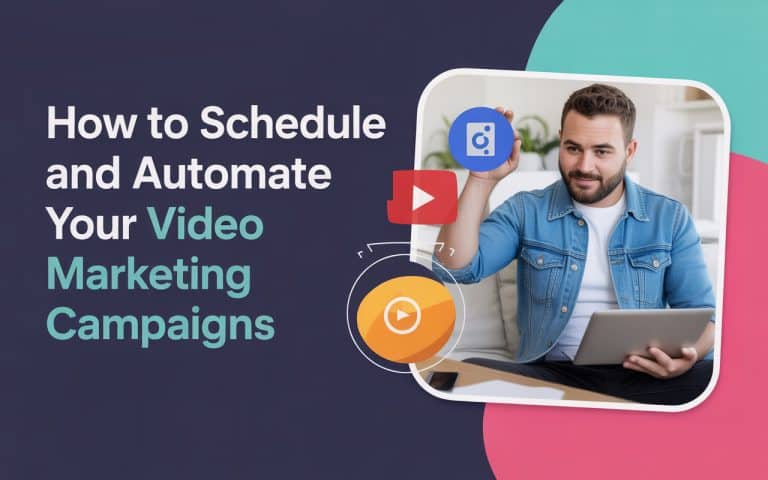
Mastering affordable digital marketing
In 2024, content marketing is a must for companies of all sizes, ranging from the smallest family-run businesses to major corporations. Yet, despite competing for the same (increasingly short) attention spans, not all businesses have access to the same resources. This may leave some small businesses struggling to keep up, or even forgoing content marketing entirely as they feel it’s not accessible to them with their small staff or tight content marketing budget.
Thankfully, there’s a new technology taking the world by storm that has been able to make a variety of processes easier and more accessible for smaller businesses. We’re talking about AI, of course. In this blog, we’ll do a deep dive into using AI for cost-effective content creation, discussing why content marketing is so important, how much it costs, and how AI can help make for more affordable digital marketing.
What Is Content Marketing?
Content marketing is a dynamic strategy centered around creating and distributing valuable, relevant, and consistent content to attract and engage a target audience. In the digital age, where information is abundant, businesses leverage content marketing to establish their authority, build brand awareness, and nurture relationships with customers. Content comes in various forms, including blog posts, articles, videos, infographics, and social media posts.
The core of content marketing lies in delivering content that resonates with the audience’s interests, pain points, and needs. It goes beyond traditional advertising, focusing on providing value to the audience rather than a direct sales pitch. Effective content marketing builds trust, fosters brand loyalty, and positions a business as an industry thought leader.
Why Content is Essential in 2024
As we step into 2024, the significance of content in the digital realm has reached unprecedented heights. Beyond being a mere marketing strategy, content has become the lifeblood of online presence and brand relevance. Its importance stems from its ability to adapt, engage, and navigate the evolving landscape of consumer behavior and digital platforms.
And the numbers do the talking. 76% of marketers report that content marketing generates demand and leads for their business, up an impressive 9 percentage points since the year before. Beyond that, 63% of marketers say that content marketing helps to nurture the customers, and 50% say that it helps build loyalty with existing customers.
Benefits of Content Marketing
Let’s dive a bit deeper into some of the benefits of content marketing.
SEO Optimization
A cornerstone of content marketing is its profound impact on Search Engine Optimization (SEO). As search engines continuously refine their algorithms, the relevance and quality of content play a crucial role in determining a website’s ranking. High-quality, relevant, and regularly updated content signals to search engines that a website is a valuable resource for users, thereby improving its visibility in search results. Effective SEO optimization through content ensures that businesses not only appear in search queries but also rank higher, driving organic traffic and establishing a strong online presence.
Building Brand Authority
Content serves as a way for businesses to share their expertise, insights, and unique perspectives. By consistently providing valuable and relevant information, businesses can position themselves as authorities within their industry. This establishment of brand authority contributes to building trust among the audience. Consumers are more likely to engage with and purchase from businesses they perceive as knowledgeable and reliable. Therefore, content marketing becomes a strategic tool for businesses to carve a niche, be recognized as thought leaders, and foster enduring relationships with their audience.
Engaging Target Audiences
Understanding and resonating with the target audience is at the core of effective content marketing. Tailoring content to address the specific needs, challenges, and interests of the audience creates a meaningful connection. Whether through blog posts, social media content, or videos, businesses can engage their audience on a personal level. This engagement not only captures attention but also encourages interactions, sharing, and brand loyalty. Content becomes a dynamic instrument for businesses to converse with their audience, fostering a sense of community and brand affinity.
Competitive Differentiation
In a saturated digital landscape where businesses vie for attention, competitive differentiation is paramount. Content marketing allows businesses to showcase their unique value propositions, differentiating themselves from competitors. By presenting distinctive perspectives, innovative solutions, and compelling narratives, businesses can stand out amidst the digital noise. This differentiation not only attracts potential customers but also solidifies a memorable brand identity, making it more likely for consumers to choose one brand over another.
The Cost of Content Creation
Despite the clear value of content marketing, the traditional processes associated with content creation often come with significant financial implications that can be daunting for businesses, especially those operating on a budget. Creating compelling and high-quality content traditionally involves a series of resource-intensive steps, each with its associated costs, winning content marketing a reputation for not necessarily being one of the most inexpensive ways to promote your business.
Let’s break down the costs associated with traditional content creation.
Professional Expertise
Employing a team of skilled writers, graphic designers, and editors is essential for crafting polished content. On average, a professional writer may charge anywhere from $50 to $150 per hour, while experienced designers and editors can demand similar rates. For businesses requiring consistent content output, the cumulative costs quickly escalate.
Software and Tools
Access to cutting-edge software and tools is crucial for content creation. Subscription fees for industry-standard software like Adobe Creative Cloud or advanced CMS platforms contribute to recurring costs, ranging from $30 to $80 per month per user.
Research and Development
Understanding the target audience and market trends involves dedicated research efforts. Hiring professionals for market analysis can incur additional costs, averaging around $1,000 to $5,000, depending on the depth and scope of the research.
Production Costs
Creating visual content demands investment in equipment, talent, and post-production. Costs for professional photography or videography services can range from $500 to $5,000 per project, depending on the complexity and scale. And while creating budget videos on a smartphone is doable enough, low-budget video content is easy to spot and doesn’t generally reflect well on your business.
Time and Project Management
Efficient content creation requires careful coordination and project management. Hiring professionals for these roles or allocating internal resources contributes to the overall expenses, with hourly rates ranging from $30 to $100.
Distribution and Marketing
Ensuring the content reaches the intended audience often involves additional costs for paid advertising and promotional campaigns. Budgets for such initiatives can vary widely but commonly range from $500 to $5,000 per campaign.
Cumulative Costs and Financial Strain
When these costs are aggregated, the financial strain on businesses becomes evident. For a medium-sized business aiming for a consistent content strategy, the annual expenses for traditional content creation can easily surpass $100,000, posing a significant challenge for businesses aiming for content marketing on a budget.
Moreover, the time-intensive nature of traditional content creation processes means that results may not align with the fast-paced demands of the digital landscape. This creates a double-edged sword where substantial investments may not yield the desired agility and responsiveness required for effective digital marketing.
How AI Can Transform Content Creation
Thankfully, the rise of AI has been able to offer businesses of all sizes cost savings on a variety of processes and operations, and budget content creation is no different. Let’s explore the profound impact of AI on content creation processes.
Automated Content Generation
AI in content creation automates the generation of diverse content formats. AI-driven tools can generate a variety of different content types, including images, text, and even videos. This not only expedites the content creation process but also ensures a level of diversity and personalization that can be challenging to achieve manually.
Personalization at Scale
AI excels in analyzing vast datasets to understand user behavior, preferences, and trends. This insight enables businesses to create highly personalized content tailored to the specific needs and interests of their target audience. AI’s ability to craft content with precision fosters authenticity, enhancing user engagement and saving businesses the time and resources required for manual customization.
Adaptation to Algorithmic Shifts
AI algorithms adapt quickly to changes in search engine and social media algorithms. Machine learning models can analyze algorithmic patterns, predict shifts, and adjust content creation strategies accordingly. This ensures that businesses stay ahead in the digital landscape, optimizing their visibility without the need for constant manual adjustments.
Automated Budget Optimization
Budget constraints often hinder traditional content creation efforts. AI-powered tools can optimize budget allocation by analyzing performance metrics in real time. Whether it’s paid advertising or influencer collaborations, AI algorithms can identify the most cost-effective strategies, ensuring that businesses maximize their impact within budget constraints. This automated approach not only saves time but also provides a data-driven foundation for strategic decision-making.
Faster, More Affordable Content Marketing
AI tools create content in various formats in a fraction of the time it would take humans to do the same. This efficiency not only saves valuable time but also reduces costs associated with labor-intensive content creation processes. The streamlined content creation process ensures a cost-effective solution for businesses seeking impactful low-cost marketing without a full marketing team or extensive resources.
Accessibility for All
AI tools eliminate the need for extensive design skills or a dedicated marketing team. Their user-friendly interfaces make them accessible to businesses of all sizes, empowering them to create compelling (cheap) content without the barriers of technical complexity. This democratization of content creation tools ensures that businesses, regardless of their scale or budget, can harness the power of AI to elevate their content strategy and achieve inexpensive marketing.
Using AI to Improve the ROI of Content Marketing
At the end of the day, marketing is all about ROI. As a smart business owner, you’re always asking yourself, “How much am I spending on marketing? And what value are my marketing efforts bringing me? How much money do I make as a result of marketing processes?”
So let’s get down to the nitty-gritty. How does AI actually impact your bottom line? What is the impact of AI on content marketing ROI?
Cost Savings on Content Creation
As we’ve explored, traditional content creation processes involve substantial expenses, from hiring professional writers and designers to investing in research and distribution. AI-powered tools, on the other hand, offer remarkable savings. For instance, businesses utilizing AI for content creation can reduce costs by 30% or more compared to traditional methods. Automated content generation, personalization, and adaptability to algorithmic shifts mean less manual labor, translating into substantial financial benefits.
Efficiency Gains and Increased Productivity
AI streamlines content creation processes, making them faster and more efficient. Time is money, and with AI, businesses can produce high-quality content in a fraction of the time it would take using traditional methods. The efficiency gains lead to increased productivity, allowing teams to focus on strategic aspects of content marketing rather than getting bogged down by labor-intensive tasks. This boost in productivity can result in a 25% to 40% improvement in overall content marketing performance.
Automated Budget Optimization
AI not only saves costs but also optimizes budget allocation. AI algorithms can analyze real-time performance metrics, identifying the most cost-effective strategies for maximum impact within budget constraints. This automated approach minimizes the risk of overspending on less effective channels and ensures that every marketing dollar is strategically utilized. Businesses adopting AI for budget optimization can experience a 15% to 20% increase in overall ROI.
Personalization Leading to Higher Conversions
Personalized content, driven by AI insights, resonates more with the target audience, leading to higher conversion rates. AI analyzes vast datasets to understand user behavior, preferences, and trends. This enables businesses to tailor content that addresses the specific needs and interests of their audience. The result? A 20% to 30% increase in conversion rates compared to generic content, directly impacting the ROI of content marketing efforts.
Enhanced SEO and Organic Traffic
AI’s role in SEO optimization is pivotal. Content created with AI assistance tends to align better with search engine algorithms, leading to improved rankings. Businesses incorporating AI-driven SEO strategies can experience a 15% to 25% increase in organic traffic, amplifying their online visibility and contributing positively to overall ROI.
PromoAI for Cost-Effective Content Production
Using AI to transform content creation from an expensive enterprise to an accessible, affordable online advertising you can do without any specialized expertise is a total game-changer. With PromoAI, it only takes a few minutes to generate an entire month’s worth of social media videos tailored to your business’s brand and audience. Try it today for professional video content on a budget and impactful yet inexpensive marketing for small business.



